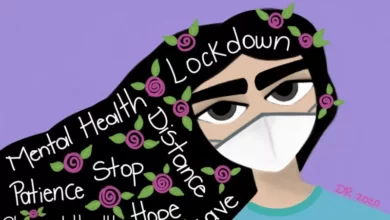The Importance of Cultural Heritage Education: Preserving and Promoting Diverse Traditions and Histories

Cultural heritage is an essential aspect of human society, representing the accumulated knowledge, beliefs, customs, and artifacts passed down through generations. It encompasses tangible and intangible elements that shape our identities and provide a connection to the past. Cultural heritage education plays a vital role in preserving and promoting diverse traditions and histories, fostering social cohesion, enhancing identity and pride, and providing valuable educational experiences for individuals of all ages.
Introduction
Cultural heritage education refers to the process of imparting knowledge and understanding about the various aspects of cultural heritage to individuals. It goes beyond the mere transmission of information; it aims to instill a sense of appreciation, respect, and responsibility towards cultural heritage. By learning about different cultures, societies, and their histories, individuals can develop a broader perspective, embrace diversity, and contribute to the preservation and promotion of cultural heritage.
Definition of Cultural Heritage Education
Cultural heritage education encompasses a wide range of activities and approaches. It includes formal education within schools, universities, and specialized institutions, as well as informal education through community organizations, museums, exhibitions, and cultural events. The goal is to ensure that people of all ages and backgrounds have access to knowledge and experiences that enhance their understanding of cultural heritage.
Significance of Preserving Cultural Heritage
Preserving cultural heritage is crucial for several reasons. Firstly, it helps us maintain a connection to our roots and understand the evolution of societies over time. By safeguarding cultural heritage, we can protect our unique identities and ensure that future generations have access to their rich cultural legacies.
Promoting Cultural Diversity
Cultural heritage education plays a pivotal role in promoting cultural diversity. By learning about different traditions, customs, and ways of life, individuals can develop a profound respect for cultural differences. It fosters a spirit of inclusivity, tolerance, and understanding, breaking down barriers and promoting harmony in diverse societies.
Understanding Different Traditions
Cultural heritage education provides an opportunity to delve into the unique traditions and practices of various cultures. It enables individuals to gain insights into the customs, rituals, and celebrations that define different communities. This understanding allows for a deeper appreciation of the diverse tapestry of human experiences.
Appreciating Cultural Histories
In addition to traditions, cultural heritage education sheds light on the historical contexts in which cultures have developed. By exploring the past, individuals can comprehend the challenges, achievements and transformations that have shaped societies. It enables individuals to appreciate the historical significance of cultural practices and artifacts, fostering a sense of connection and respect for the past.
Fostering Social Cohesion
Cultural heritage education plays a vital role in fostering social cohesion within communities and societies. By promoting understanding and empathy, it helps bridge divides and encourages cooperation among diverse groups. It cultivates an environment of mutual respect and appreciation, reducing prejudice and discrimination.
Bridging Divides
Cultural heritage education acts as a bridge between different cultural groups by creating opportunities for interaction and dialogue. It encourages individuals from various backgrounds to come together, exchange ideas, and build connections based on shared values and experiences. This exchange contributes to the formation of inclusive communities and promotes social integration.
Promoting Tolerance and Understanding
By learning about different cultures and their histories, individuals develop a broader perspective and gain a deeper understanding of the complexities of the world. Cultural heritage education fosters tolerance and acceptance by dispelling stereotypes and promoting open-mindedness. It encourages individuals to appreciate the value of diversity and recognize the shared humanity that underlies cultural differences.
Enhancing Identity and Pride
Cultural heritage education plays a crucial role in enhancing individual and collective identities. It provides a sense of belonging and pride, empowering individuals to embrace their cultural heritage and celebrate their roots.
Connection to Roots
For individuals belonging to a particular cultural group, cultural heritage education strengthens their connection to their ancestral roots. It allows them to explore the traditions, language, and values that have been passed down through generations. This connection fosters a sense of identity and belonging, providing a foundation for personal growth and self-confidence.
Celebrating Cultural Identities
Cultural heritage education encourages individuals to celebrate and share their cultural identities with others. It promotes cultural pride by highlighting the achievements, contributions, and unique characteristics of different communities. This celebration of diversity enriches society as a whole, fostering a sense of collective pride and unity.
Educational Benefits of Cultural Heritage Education
Apart from its societal significance, cultural heritage education offers numerous educational benefits. It provides multidisciplinary learning opportunities and develops critical thinking skills in individuals of all ages.
Multidisciplinary Learning Opportunities
Cultural heritage encompasses various disciplines such as history, anthropology, archaeology, art, and literature. Cultural heritage education integrates these diverse fields, offering multidisciplinary learning experiences. It encourages individuals to explore different areas of knowledge, fostering a holistic understanding of culture and society.
Developing Critical Thinking Skills
Studying cultural heritage requires individuals to analyze and interpret historical, artistic, and societal aspects. This process develops critical thinking skills, as individuals learn to evaluate different sources of information, examine multiple perspectives, and make informed judgments. Cultural heritage education encourages individuals to think critically, fostering intellectual growth and analytical abilities.
Engaging and Interactive Learning Experiences
Cultural heritage education provides engaging and interactive learning experiences through various mediums, such as museums, exhibitions, workshops, and cultural events. These hands-on approaches allow individuals to actively participate in their learning journey, making it more memorable and impactful.
Museums and Exhibitions
Museums and exhibitions play a crucial role in cultural heritage education. They offer immersive experiences where individuals can observe and interact with artifacts, artworks, and cultural displays. Museums provide a platform for preserving and showcasing cultural heritage, enabling visitors to engage with history and culture in a tangible and meaningful way.
Cultural Workshops and Events
Cultural workshops and events provide opportunities for individuals to actively participate in cultural practices and traditions. They offer hands-on learning experiences where individuals can learn traditional crafts, music, dance, cuisine, and other aspects of cultural expression. These interactive activities foster a deeper appreciation for cultural heritage by allowing individuals to experience it firsthand.
Challenges in Cultural Heritage Education
While cultural heritage education brings immense value, it also faces certain challenges that need to be addressed for its effective implementation and impact.
Preservation and Restoration
Preserving and restoring cultural heritage sites and artifacts require dedicated efforts and resources. Many cultural treasures are at risk due to natural disasters, urban development, pollution, and insufficient maintenance. Cultural heritage education must emphasize the importance of preservation and advocate for sustainable practices to safeguard these valuable assets for future generations.
Accessibility and Inclusivity
Ensuring equal access to cultural heritage education for all individuals is crucial. This includes addressing barriers such as physical accessibility, language barriers, and financial constraints. Efforts should be made to make cultural heritage education inclusive and accessible to individuals from diverse backgrounds, including marginalized communities and people with disabilities.
Strategies for Effective Cultural Heritage Education
To maximize the impact of cultural heritage education, several strategies can be employed:
Integration into School Curricula
Integrating cultural heritage education into formal education curricula provides structured and consistent learning opportunities for students. By incorporating cultural heritage topics across various subjects, such as history, social studies, arts, and languages, students can develop a comprehensive understanding of their own culture and those of others.
Collaboration with Communities
Engaging local communities and cultural organizations is vital for effective cultural heritage education. Collaborative efforts can include involving community members in educational programs, leveraging their knowledge and expertise, and creating platforms for community participation and dialogue. Such collaborations ensure the authenticity and relevance of cultural heritage education.
Successful Examples of Cultural Heritage Education Programs
Several initiatives have successfully implemented cultural heritage education programs, showcasing their potential impact:
UNESCO’s World Heritage Education Program
UNESCO’s World Heritage Education Program aims to raise awareness and understanding of World Heritage sites among students worldwide. The program offers educational materials, teacher training, and interactive activities to engage students in exploring the significance of cultural and natural heritage.
Local Initiatives and Partnerships
Many local communities and organizations have developed innovative cultural heritage education programs. These initiatives involve collaborations between schools, museums, community centers, and local artists or historians. They often incorporate immersive experiences, storytelling, and hands-on activities to bring cultural heritage to life.
Future Directions and Innovations
As technology advances, it opens up new possibilities for cultural heritage education:
Utilizing Technology
Virtual reality (VR), augmented reality (AR), and digital platforms can enhance cultural heritage education by providing immersive and interactive experiences. Virtual tours of historical sites, digital archives of artifacts, and online learning platforms offer innovative ways to engage learners and make cultural heritage accessible to a wider audience.
Sustainable Practices in Preservation
Incorporating sustainable practices in the preservation of cultural heritage is essential. Emphasizing eco-friendly conservation techniques, renewable energy solutions, and responsible tourism practices ensures the long-term preservation of cultural heritage while minimizing negative environmental impacts.



